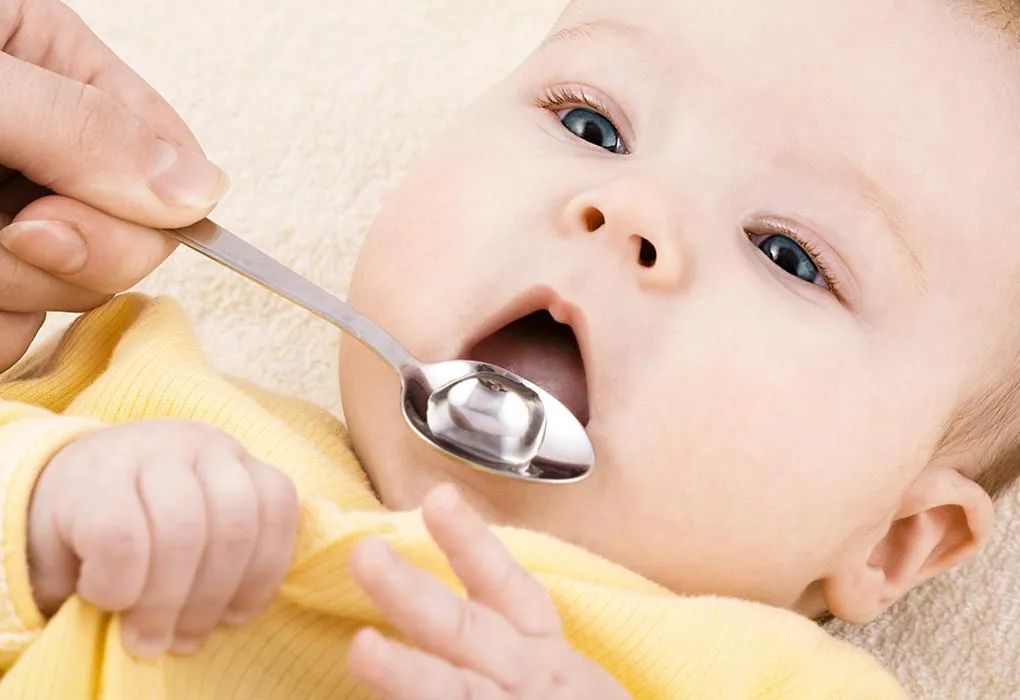When Do You Give Baby Gas Drops


At FirstCry Parenting, our aim is to give you the most elevant, accurate and up to date information.
Every article that we publish, confirms to stringent guidelines & involves several levels of reviews, both from our Editorial team & Experts. We welcome your suggestions in making this platform more useful for all our users. Write in to us at parenting.care@firstcry.com

- What Are Gas Drops?
- Can You Use Gas Drops for Your Baby?
- How to Administer Gas Drops
- What is the Recommended Dosage for Infants?
- How Effective Are Infant Gas Drops?
- Are There Any Side Effects of Treating Your Baby With Gas Drops?
- Are There Any Alternatives to Gas Drops?
Last Updated on
Does your baby usually cry profusely, wake up in the middle of the night or generally appear cranky? Well, it is quite likely that your baby may be having gas trouble. Gas is a common problem among babies and infants because their immature immune system does not always digest food properly. Where some parents wait for it to subside on its own, others may panic and look for quick resorts to soothe their crying baby and opt for solutions such as gas drops. Do these drops work? How should you give them and what is the correct dosage? Find out the answers for all such questions in the following article.
What Are Gas Drops?
Gas drops are medicines used to relieve the symptoms of gas, indigestion or tummy pain in infants and babies. Some parents may administer these drops to ease digestive issues in their babies with this over-the-counter medicine.
Can You Use Gas Drops for Your Baby?
Usually, gas drops are considered safe for babies and, thus, can be safely administered to treat tummy troubles. However, some drops may contain simethicone, which may contain artificial sweeteners or flavours that can harmful to your baby's health. You must read the label of the medicine carefully to see whether or not your baby may be allergic to any of the ingredients.
How to Administer Gas Drops
The gas drops are administered orally or into your baby's mouth with a dropper or a spoon. You should hold your baby's cheeks and pour the medicine into your baby's mouth. Ideally, you should give the drops after meals or as per the directions from your doctor. Sometimes your baby may not like the taste of the medicine, and under such a situation you may add the drug to the formula milk, water or your baby's cereal.
What is the Recommended Dosage for Infants?
The dosage is usually mentioned on the label of the medicine, according to the age bracket of your baby. If you are not sure of simethicone dose for infants or dosage of other gas drops for infants, you can ask your doctor for the correct dosage. It is recommended to strictly follow the daily dosage limit and refrain from over-dosage, as it can lead to complications.
How Effective Are Infant Gas Drops?
If you wish to administer gas drops for colic or other tummy issues, you can do so because these are safe for babies. However, if you are looking for conclusive evidence or proof about whether gas drops are safe for babies or not, then, strangely, there are not many studies available to support this claim that gas drops ease your baby's tummy issues. Though there is some evidence that depicts the positive impact of using gas drops for babies. However, the results of these studies may be considered an exception.
Are There Any Side Effects of Treating Your Baby With Gas Drops?
The side-effects of gas drops are very unlikely and rarely seen. However, in some rare cases, your baby may exhibit an allergic reaction to this medicine, which may lead to:
- Swelling or itching of tongue, throat or face
- Trouble in breathing
- Skin rash
- Dizziness
These are some of the probable side-effects of anti-gas drops for newborn babies that you may notice; however, there may be others too. If you see any other side-effect of these drops, you must report to your doctor.
Are There Any Alternatives to Gas Drops?
If you are on a lookout for alternative methods of dealing with your baby's digestive issues, here we have some recommendations that you could try:
1. Gripe Water
If you are thinking about the natural gas drop for babies, then you should consider gripe water. It can be a homoeopathic or herbal preparation and, thus, can be regarded as the best gas drops for babies.
2. Probiotics
Probiotics are a type of good bacteria available in the form of liquid to assist your baby's immune system and reduce the symptoms of tummy ailments, such as gas, bloating etc. However, you might have to use probiotics for some time to register its efficacy to treat gas trouble in babies.
Apart from the above-mentioned alternatives, parents can opt for other natural methods for curing gas in babies such as ginger, chamomile, fennel, clove and others.
Stomach gas can make your baby extremely irritable and cranky. If you are on a lookout for ending your baby's tummy woes, you may help your baby get some relief with gas drops. If at any given point of time you feel sceptical about giving anything to cure tummy problems in your baby, you should ask your doctor for help. Your doctor's guidance will turn out to be fruitful in solving your baby's gas issues.
Also Read:Home Remedies for Stomach Pain in Babies
When Do You Give Baby Gas Drops
Source: https://parenting.firstcry.com/articles/using-gas-drops-for-babies-is-it-safe/


0 Response to "When Do You Give Baby Gas Drops"
Post a Comment